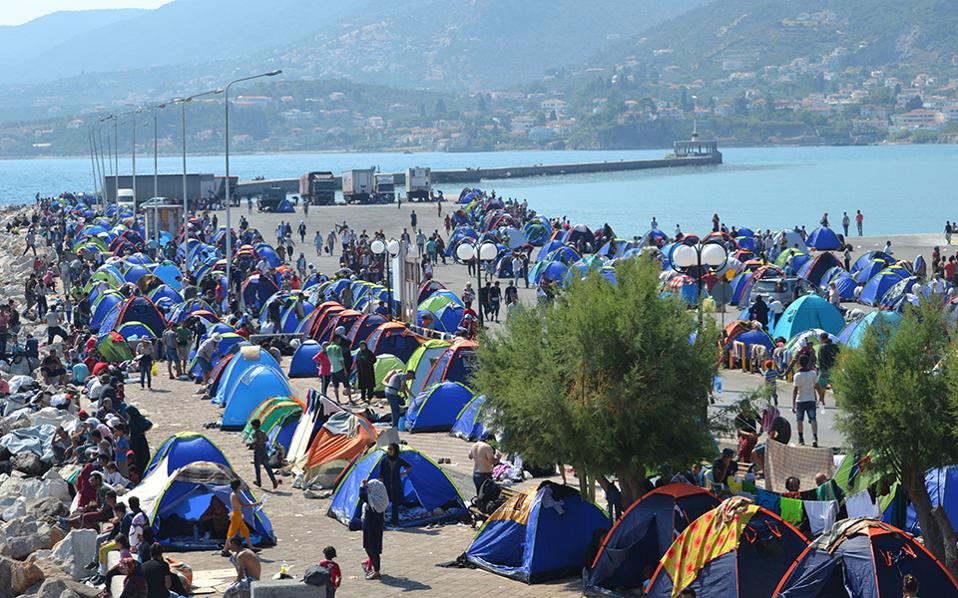EU sets new quotas for states to take asylum-seekers, source says

The EU executive has drawn up a new set of national quotas under which Germany will take in more than 40,000 and France 30,000 of a total of 160,000 asylum-seekers it says should be relocated from Italy, Greece and Hungary, an EU source said on Monday.
European Commission President Jean-Claude Juncker is due to unveil new proposals on Wednesday. EU officials have said he will propose adding 120,000 people to be relocated on top of a group of 40,000 the Commission previously proposed relocating.
The initial proposal to relocate refugees arriving in Italy and Greece would also be expanded to include refugees arriving in Hungary.
Member states rejected binding national quotas in June but since their voluntary offers have fallen short of 40,000 while the numbers of people arriving in Europe has surged, the Commission, backed by Germany and France, is pushing for governments to accept allocations set for them in Brussels.
While Germany has said it is willing to take in many refugees and President Francois Hollande confirmed France's readiness on Monday to take in its share under the European Commission's guidelines, the quotas could see renewed resistance from governments which say they cannot cope with such numbers.
Poland, for example, has said it might handle about 2,000 people under proposed EU pilot schemes for easing pressure on southern frontier states. But under the Commission's new proposal, Warsaw would be asked to receive close to 12,000.
Slovakia has said it does not want to take in Muslims.
EU interior ministers will debate the Commission's proposals at an emergency meeting next Monday in Brussels.
The 160,000 refugees would include 66,400 who have arrived in Greece, 54,000 who have arrived in Hungary and 39,600 who have arrived in Italy.
Italy and Greece are the main entry points for refugees who reach the European Union by sea, while Hungary as the main entry point for those arriving by land across the Balkan peninsula, has more recently become a focus of the crisis.
Hungary would also join Italy and Greece in being exempt from taking in a share of the refugees relocated under the system. Prime Minister Viktor Orban has been a vocal opponent of national quotas.
The refugees would be distributed under a formula, or "distribution key", based 40-percent on receiving countries' national income, 40-percent on population, 10-percent on the unemployment rate and 10-percent on how many refugees the country was already accommodating before this year's crisis.
Britain has an exemption from EU asylum policy, as do Ireland and Denmark. Dublin volunteered to take in 600 people under the earlier scheme to relocate 40,000 asylum seekers.
The source said the Commission also planned to put Turkey and all the non-EU states of the Western Balkans on a new list of "safe" countries, whose citizens would face accelerated reviews of asylum claims to speed deportation for most of them.
The following table shows the numbers of asylum-seekers each country would take, both from the proposal for the initial 40,000 in May and the latest proposal for an additional 120,000.
Of 40,000 Of 120,000 Of 160,000
proposed in additional in TOTAL
May new proposal
Austria 1,213 3,640 4,853
Belgium 1,364 4,564 5,928
Bulgaria 572 1,600 2,172
Croatia 747 1,064 1,811
Cyprus 173 274 447
Czech Rep 1,328 2,978 4,306
Estonia 738 373 1,111
Finland 792 2,398 3,190
France 6,752 24,031 30,783
Germany 8,763 31,443 40,206
Greece
Hungary 827*
Italy
Latvia 517 526 1,043
Lithuania 503 780 1,283
Luxembourg 368 440 808
Malta 292 133 425
Netherlands 2,047 7,214 9,261
Poland 2,659 9,287 11,946
Portugal 1,701 3,074 4,775
Romania 1,705 4,646 6,351
Slovakia 785 1,502 2,287
Slovenia 495 631 1,126
Spain 4,288 14,931 19,219
Sweden 1,369 4,469 5,838
* Hungary was initially expected to take some people in from Italy and Greece but was later promised an exemption.
[Reuters]





